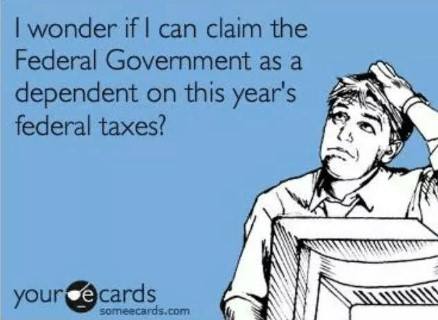 Year-end Tax Tip. Avoid taxes on an #RMD with a #charitabledonation. Seniors who have a traditional 401(k) or #IRA account must take a required minimum distribution each year once they reach age 70 1/2. Those who don’t need this money for living expenses may want to consider having it sent directly to a charity as a qualified charitable distribution. “If you take it out as a qualified charitable distribution, it doesn’t increase your adjusted gross income,” says Mike Piershale, president of Piershale Financial Group in Crystal Lake, Illinois. “It can also hold down the amount of# that is taxed.”
Year-end Tax Tip. Avoid taxes on an #RMD with a #charitabledonation. Seniors who have a traditional 401(k) or #IRA account must take a required minimum distribution each year once they reach age 70 1/2. Those who don’t need this money for living expenses may want to consider having it sent directly to a charity as a qualified charitable distribution. “If you take it out as a qualified charitable distribution, it doesn’t increase your adjusted gross income,” says Mike Piershale, president of Piershale Financial Group in Crystal Lake, Illinois. “It can also hold down the amount of# that is taxed.”
Tag Archives: EA
Simple Ways to Save Money #4
 One of the best ways to save money is to set a goal. Start by thinking of what you might want to save for—anything from a down payment for a house to a vacation—then figure out how long it might take you to save for it.
One of the best ways to save money is to set a goal. Start by thinking of what you might want to save for—anything from a down payment for a house to a vacation—then figure out how long it might take you to save for it.
Continue reading
Year-End Tax Tip
I Wonder…?
Common Sense…
IF YOU THINK YOU’RE PAYING TOO MUCH IN FEDERAL INCOME TAX, YOU PROBABLY ARE! The old paradigm was “Those who can afford the expense, hire Enrolled Agents and Tax Consultants. The new paradigm is, is that you really can’t afford not to. We seek a second opinion on legal and medical matters, but not so much in the area of income tax, the largest burden your government places upon you…Why?
Simple Ways to Save Money #3
 Sometimes the hardest thing about saving money is just getting started. It can be difficult to figure out simple ways to save money and how to use your savings to pursue your financial goals.
Sometimes the hardest thing about saving money is just getting started. It can be difficult to figure out simple ways to save money and how to use your savings to pursue your financial goals.
Tip 3: Now that you’ve made a budget, create a savings category within it. Try to put away 10–15 percent of your income as savings. If your expenses are so high that you can’t save that much, it might be time to cut back. To do so, identify non-essentials that you can spend less on, such as entertainment and dining out.
Tip: Considering savings a regular expense, similar to groceries, is a great way to reinforce good savings habits.
Simple Ways to Save Money #2
 Sometimes the hardest thing about saving money is just getting started. It can be difficult to figure out simple ways to save money and how to use your savings to pursue your financial goals.
Sometimes the hardest thing about saving money is just getting started. It can be difficult to figure out simple ways to save money and how to use your savings to pursue your financial goals.
Tip 2: Once you have an idea of what you spend in a month, you can begin to organize your recorded expenses into a workable budget. Your budget should outline how your expenses measure up to your income—so you can plan your spending and limit overspending. In addition to your monthly expenses, be sure to factor in expenses that occur regularly but not every month, such as car maintenance.
Simple Ways to Save Money #1
 The first step to saving money is to figure out how much you spend. Keep track of all your expenses—that means every coffee, newspaper, and snack you buy. Ideally, you can account for every penny. Once you have your data, organize the numbers by categories, such as gas, groceries, and mortgage, and total each amount. Consider using your credit card or bank statements to help you with this. If you bank online, you may be able to filter your statements to easily break down your spending.
The first step to saving money is to figure out how much you spend. Keep track of all your expenses—that means every coffee, newspaper, and snack you buy. Ideally, you can account for every penny. Once you have your data, organize the numbers by categories, such as gas, groceries, and mortgage, and total each amount. Consider using your credit card or bank statements to help you with this. If you bank online, you may be able to filter your statements to easily break down your spending.
Thomas Vincent Cuomo, EA, CTC – Hobby or Business?
 Millions of people enjoy hobbies that are also a source of income. From catering to cupcake baking, crafting homemade jewelry to glass blowing — no matter what a person’s passion, the Internal Revenue Service offers some tips on hobbies.
Millions of people enjoy hobbies that are also a source of income. From catering to cupcake baking, crafting homemade jewelry to glass blowing — no matter what a person’s passion, the Internal Revenue Service offers some tips on hobbies.
Taxpayers must report on their tax return the income earned from hobbies. The rules for how to report the income and expenses depend on whether the activity is a hobby or a business. There are special rules and limits for deductions taxpayers can claim for hobbies. Here are five tax tips to consider: Continue reading
Thomas Vincent Cuomo, EA, CTC – Self employed? Use these pointers at tax time
 Determine what’s deductible
Determine what’s deductible
Under IRS rules, deductible business expenses for the self-employed must be “ordinary” and “necessary.” Basically, these are the costs that are commonly incurred by businesses similar to yours and readily justifiable as needed to run your operations.
The tax agency stipulates, “An expense does not have to be indispensable to be considered necessary.” But pushing this gray area too far can trigger an audit. Common examples of deductible business expenses for the self-employed include licenses, professional fees, equipment, supplies, legal expenses and business-related software, along with related auto expenses and educational expenses



